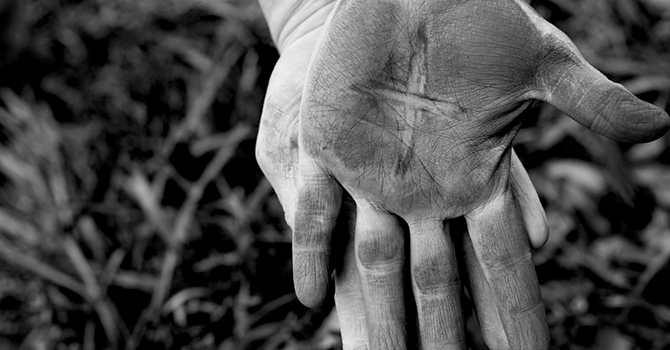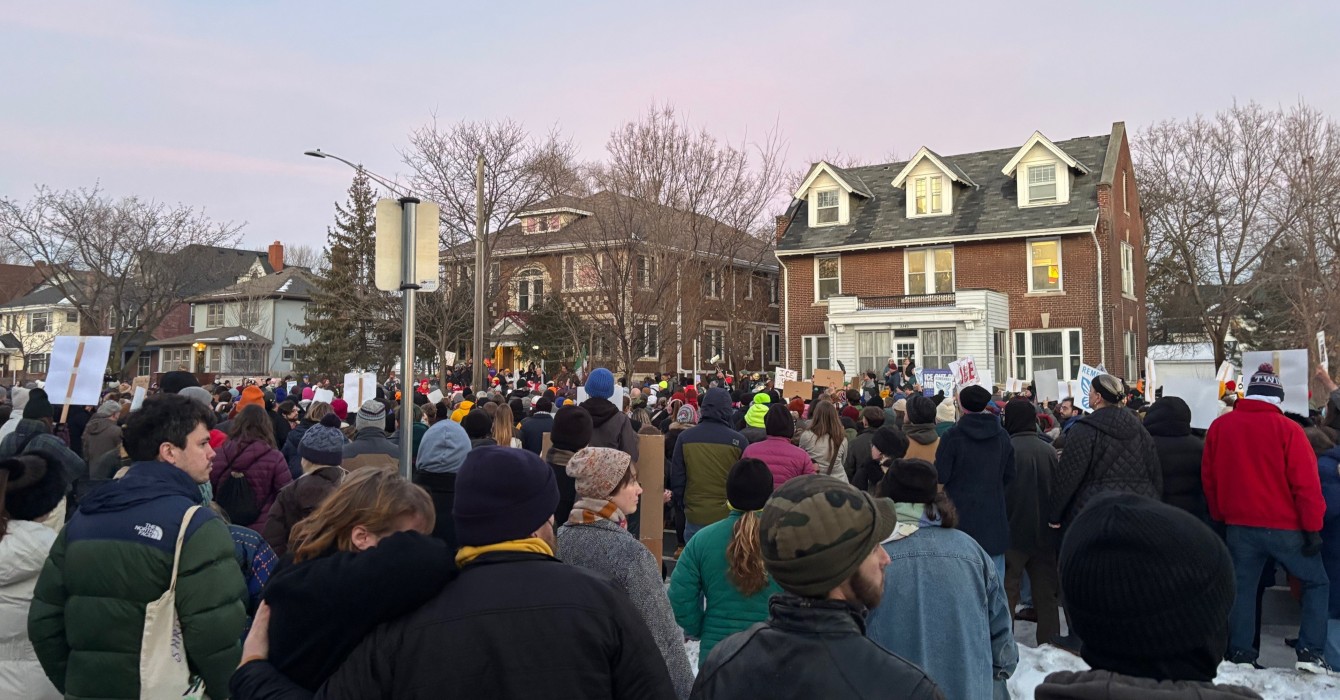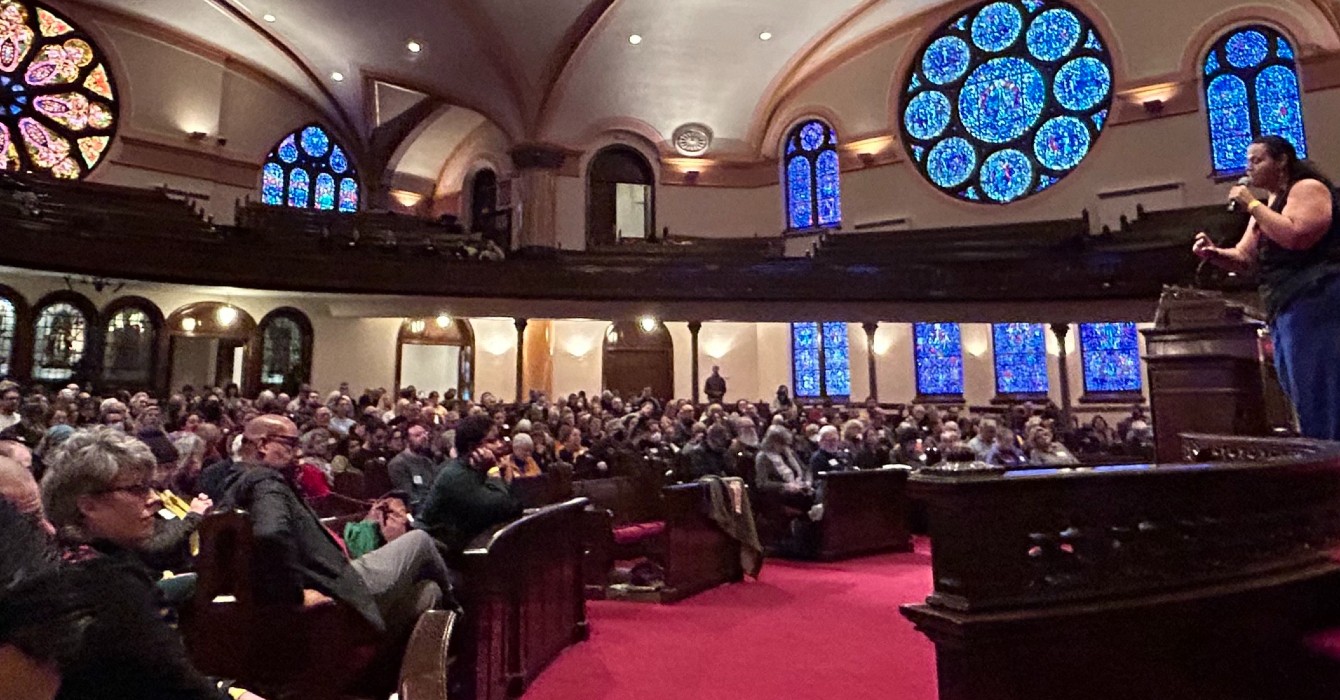We enter the season of Lent through Ash Wednesday. It is a day meant to remind us of our mortality — how fragile and fleeting life truly is, even as we begin 40 days of reflection, repentance and spiritual renewal.
The ashes placed on our foreheads, often accompanied by the words “Remember that you are dust, and to dust you shall return,” serve as a humbling acknowledgment of our impermanence and our need for deeper faith, purpose and compassion. But 2025 has already been marked by so much suffering and grief — do we really need Ash Wednesday as a reminder this year?
The parents of one of my closest friends, a couple who had called their Pasadena home of 45 years their sanctuary, watched in heartbreak as January’s Eaton wildfire reduced it to ashes. The fire, fueled by relentless Santa Ana winds and a monthslong drought, tore through their neighborhood with merciless speed, leaving them with nothing but the clothes on their backs and a small box of family photos they’d grabbed in haste.
Once the heart of holiday gatherings and Sunday dinners, their home is now a smoldering memory. The January wildfires were a stark reminder for so many that places of refuge and sanctuary — and indeed, life itself — could vanish in an instant.
Not long after the fires, as the first month of the new year ended, a midair collision between an Army helicopter and an American Airlines flight from Kansas claimed the lives of 67 more people.
Each of those souls was named and known. Each carried hopes, dreams and plans that were cut short in an instant. The tragedy was a heartbreaking reminder of life’s fragility, leaving families and communities in grief and reflection on the preciousness of time.
Most recently, as I was teaching, one of my students asked to be excused and made it to the hallway before breaking down into tears. When I asked her what was wrong, she explained that her mother had just lost her job as a cancer researcher in the wake of the federal government’s mass layoffs under the new administration.
For the past 15 years, her mother had been studying innovative immunotherapy treatments, working to develop targeted therapies that could improve survival rates for patients with aggressive cancers. Now, with funding slashed and her position eliminated, she faces an uncertain future, mourning not only the loss of her career but also the vital research left unfinished.
My student is devastated for her mother. She can barely focus on her academics amid her constant feelings of anger, fear and helplessness as the weight of their new reality sets in. These layoffs are a reminder of how quickly we can lose the parts of our identity tied to the work we feel called to do as well as the financial security it can provide.
From devastating natural disasters to tragic accidents to widespread economic hardships, events that few could have anticipated have upended countless lives as this new year begins. Many are struggling to find stability amid uncertainty and fear. These early months have served as a sobering reminder of life’s unpredictability, forcing us to confront loss while seeking resilience and hope in the face of adversity. In this moment, do we really need any more reminders of our mortality?
The Lenten season lacks the vibrant pageantry and holiday cheer of Christmas, with its twinkling lights, festive music and air of celebration. Lent is quieter and more contemplative, focused on reflection, penance and spiritual preparation.
At the season’s start, the solemnity of Ash Wednesday calls us to examine our mortality and confront the unavoidable truth that life is temporary. The days that follow prepare us for the inexorable journey toward Jesus’ crucifixion at the hands of empire. This year, we’ve been reminded of that all too well.
In the face of recent realities, my spiritual life has been marked by a pessimism that I have had a difficult time shaking. Instead of entering Lent with my usual quiet anticipation, I enter wondering: What’s the point? Where’s the hope? Where is God? But through these questions and feelings, I have found reassurance that even in the ashes, even in the dust, there is hope. God does in fact meet us in the dust.
I have seen God in the dust of neighbors opening their homes to those displaced, offering shelter, food and emotional support in the aftermath of the Los Angeles fires. Amid the destruction, a deep sense of solidarity has emerged, demonstrating the power of community and compassion in times of crisis.
I have seen God in the dust of people coming together in powerful ways to raise money and provide aid for vulnerable communities, determined to fill the gaps created when organizations have lost funding to do that work.
There are many pockets of hope and human examples of love and kindness even amid the challenges we currently face. Perhaps Ash Wednesday is meant to bring not despair but encouragement as we reflect on how we are living, what truly matters, and how we can use our lives meaningfully.
Perhaps Ash Wednesday is asking us, in this moment: How can we open our eyes to see where God is meeting us in the dust?
Many are struggling to find stability amid uncertainty and fear.

















